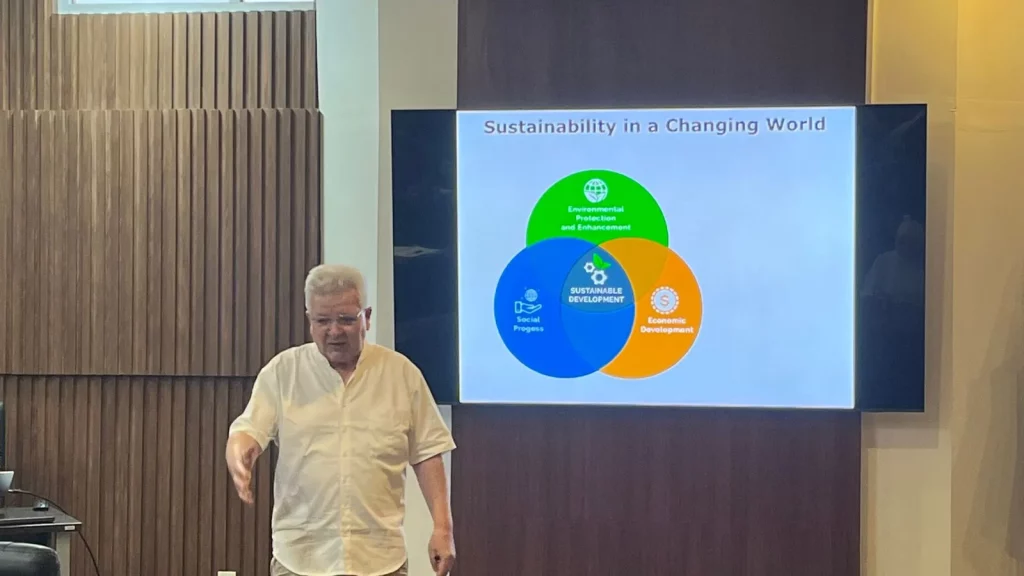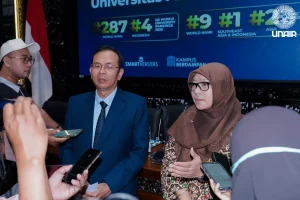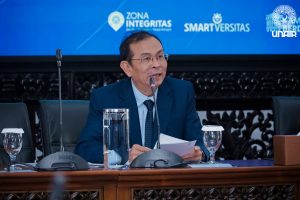UNAIR NEWS – The climate crisis and global well-being were the primary focus of AMORA: Airlangga SDGs School x SDGs Ambassador 2025, a program hosted by the Sustainable Development Goals (SDGs) Center at Universitas Airlangga (UNAIR). Held on Thursday, May 15, 2025, at the Bayu Kinara Room in UNAIR’s Airlangga Convention Center, the event featured Professor Zeef Bohbot from the KTH Royal Institute of Technology, Sweden, as the keynote speaker.
Needs vs. wants
During his lecture, Prof. Bohbot cited the 1987 Brundtland Report, which defines sustainable development as meeting the needs of the present without compromising the ability of future generations to meet their own. He emphasized that in today’s society, the line between genuine needs and consumer-driven wants has become increasingly blurred. He urged attendees to critically examine the concept of “needs” and how it influences sustainable behavior.
“Replacing electronics, buying new cars, and overconsumption are often labeled as necessities, when in reality, they reflect social status,” he explained.
Planetary boundaries and climate change
Prof. Bohbot presented current data on climate change, stating that the Earth’s average temperature has risen by 1.4°C, nearing the 1.5°C threshold set by the Paris Agreement. In some regions, such as Scandinavia, temperatures have already surged by 4°C.
“It’s highly unlikely that we’ll stay below the 1.5°C target,” he said.
Despite technological advancements in renewable energy, he pointed out that 78 percent of global energy consumption still comes from non-renewable sources. He introduced the concept of planetary boundaries, developed by the Stockholm Resilience Centre, which outlines nine environmental limits—including climate change, biodiversity loss, and land degradation—that are essential for maintaining a safe operating space for humanity.
“Many of these boundaries have already been crossed. We are now in a danger zone for human survival,” he warned.
Students as agents of change
Known for his clear, data-backed presentation style, Prof. Bohbot called on students not just to understand the challenges posed by the climate crisis but to actively contribute to the solutions. He stressed that the current generation holds significant responsibility for environmental degradation and must lead the effort to reverse the damage.
“We are the generation that created much of this crisis. It is our duty to be the ones to fix it,” he stated.
Through this initiative, UNAIR continues to affirm its role as a higher education institution committed to producing future leaders who are informed, responsible, and engaged in addressing global issues. AMORA offers more than academic insight—it also encourages students to reflect on their role in creating a more sustainable future.
Author: Ameyliarti Bunga Lestari
Editor: Khefti Al Mawalia









